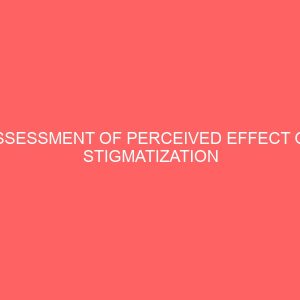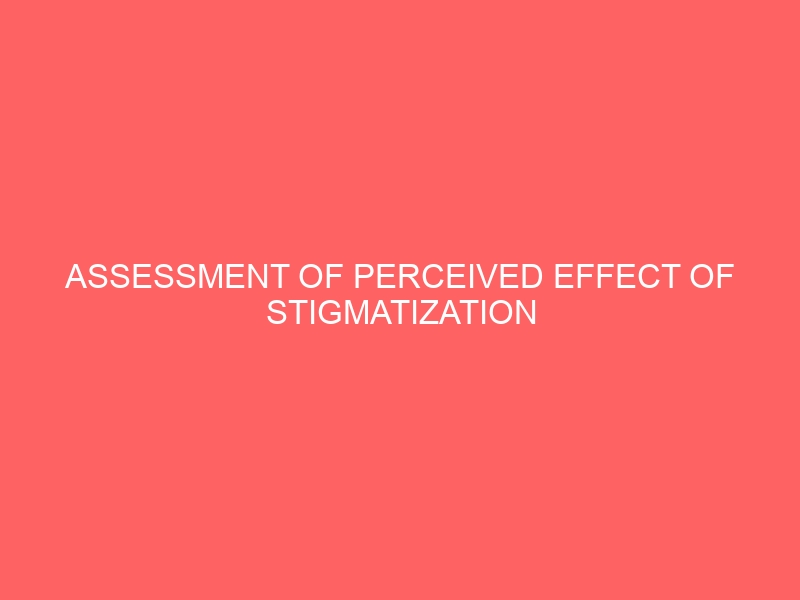Description
Assessment of perceived effect of stigmatization of mentally deranged patients among psychiatric nurses in Nwafia Njikoka lga, Anambra state.
Abstract
This cross-sectional study assessed perceived stigmatization impacts on mentally ill patients among 50 psychiatric nurses in Nawfia, Nigeria. Specific aims evaluated stigmatization effects, causes, and improvement strategies. Watson’s caring theory provided theoretical grounding. Results evidenced widespread patient stigmatization. Majorities reported observing isolation/shame (72%), reluctance to seek treatment (80%), lack of family support (56%), reduced employment/social interaction (70%), and bullying/harassment (62%). In summary, people with mental illness confront dual challenges–disabling symptoms as well as prejudice and stereotypes producing misconceptions. Consequently, they are often denied quality of life opportunities including jobs, housing, healthcare, and social affiliation. Blame, derogatory labels, dismissal of symptoms as weaknesses under personal control, illegal discrimination, and judgments for uncontrolled aspects of health are common. Most critically, stigma provokes shame and deters treatment seeking. While declining, stigma’s pace of change remains deficient and unacceptable for an already vulnerable group shouldering significant burdens. Nurses are optimally positioned to detect stigmatization through patient impacts and advocate to educate communities, empower patients to navigate care, and influence institutional and public policies to protect rights. However, current observations among nursing professionals at the front lines of psychiatric care reveal mental health stigma remains widespread, systemic across multiple sectors of society, and detrimental to critical treatment engagement among affected populations. Renewed commitment is required to combat stigma through nursing care empowerment, policy changes, community awareness campaigns, support programs for patients and families, and enforcement of anti-discrimination legal protections.








Brilliantng –
LncFhoWp –